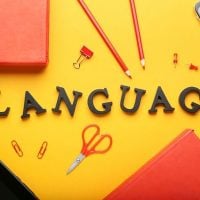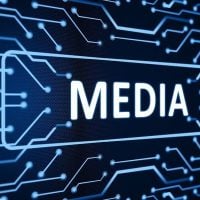Deadline: 3-Jul-23
The U.S. Embassy in Guatemala through this notice of funding opportunity (NOFO) seeks proposals for the implementation of the English Access Microscholarship (Access) program.
Access Goals and Objectives
- The goal of the Access Program is to provide participants with improved skills that contribute to building more resilient, engaged, and prosperous communities that are more aware of, and better connected to, U.S. culture. While the direct recipients of the scholarships are the students, the impact of the Access program should extend to families, communities, educators, and institutions.
Core Program Components
The three core components of the Access program are:
- After-School Instruction (mandatory)
- Access is a two-year program that requires a minimum of 580 hours of instruction for each cohort, with hours being reasonably distributed over a two-year period. Classes should meet at least 2 times per week in-person, and 1-2 times synchronously online. Each in-person class should last from 1.5 to 3 hours and each synchronous lesson should last 45-90 minutes. In addition to the synchronous class, asynchronous opportunities should be included in the LMS. The time students spend on asynchronous classes should not be counted in the total required instructional hours. It is the responsibility of the partners to consider the schedule of the students to ensure that Access classes do not interfere with students’ regular school schedule. PAS is confident that a blended approach will help alleviate – but not necessarily always solve – scheduling conflicts.
- Enhancement Activities (mandatory)
- There are four kinds of enhancement activities: U.S. culture, technology, community service, and personal development. These activities must occur regularly throughout the two-year program, and the hours involved in these activities are considered part of the total number of hours offered. Partners should be creative in their approach to planning such activities. Past successful activities include creating an Access web page or newspaper, conducting a Model United Nations project, running an environmental awareness campaign for a neighborhood, performing drama activities for underserved populations, including those in senior citizen homes, and tutoring English to students at a nearby elementary school.
- Where possible, appropriate, and relevant, partners should:
- find ways to ensure that activities have a long-lasting impact (through multiple visits over several months) rather than taking a once-and-done approach
- look for opportunities to maximize the use of English in meaningful contexts and use Spanish only when needed with certain audiences
- collaborate with PAS to involve U.S. Embassy and Consulate personnel, U.S. English Language Fellows, Fulbright exchange participants and/or Peace Corps volunteers
- Intensive Sessions (encouraged)
- Intensive sessions are immersive experiences that provide students with time to fully experience an English-medium environment outside of the classroom for a sustained period. The sessions are often organized around a specific theme, such as environmental awareness, and may last from three days to two weeks, with no more than 40 hours per week of activities.
- Intensive sessions should combine English language instruction with U.S. cultural activities such as drama, computers, art, music, or games and sports, or civic responsibility projects, leadership and teamwork training, or tolerance programs. The most successful immersion experiences are those run primarily by the implementing partner itself, with outside individuals included as needed to support the Access teachers. In collaboration with RELO, it is also possible to include an English Language Fellow, Specialist, Peace Corps Volunteer, Fulbright English Teaching Assistant, Access alumni, or other support.
Funding Information
- Length of performance period: 24 months
- Number of awards anticipated: Seven (7) awards.
- Award amount: Award is a maximum of $48,000.
- Total available funding: $336,000.
- Anticipated program start date: February 2024
- Program Performance Period: Proposed programs should be completed in 24 months or less. The actual instruction period runs from February 2024 to December 2025.
During the life of the program, Access students will
- Be given a foundation of English language skills
- Gain an appreciation for U.S. culture and democratic values
- Develop digital literacy skills
- Participate in personal development activities
- Take part in Service-Learning activities
Who
- Partner Capacity:
- Potential partners should have a background in creating, implementing, and monitoring quality English language teaching programs. While there is no “standard” partner, most are educational institutions and/or NGOs. It is important that partners show a history of embracing the values of the Access program, through a track record of professional development for its instructors, incorporating environmental awareness and social responsibility concepts and practices into the curriculum, building a wider network of stakeholders, and addressing digital and critical media literacy. While potential partners might not have a history with all of these themes, it is important that they show a commitment to addressing all of them in the proposal.
- Teacher Selection:
- Partners are responsible for identifying and, if necessary, recruiting highly competent Access teachers. RELO representatives will often be involved in teacher selection.
- Access teachers must have:
- At least a B2 proficiency in the CEFR and be comfortable and fluent in English with proof.
- Access teachers should have:
- Progressive views about methodology, employing interactive, learning-centered approaches that focus on tasks and projects
- Experience teaching teens
- First-hand experience with American culture
- Experience in designing and carrying out service-learning activities
- The ability to organize and participate in enhancement and out-of-class activities
- Confidence engaging students online and working with an LMS
- A willingness and availability to attend Access training courses offered by the partner and PAS
- Student Selection:
- The partner is responsible for demonstrating that students enrolled in the program fit the target audience, which is:
- Economically disadvantaged youth (demonstrated by documents such as an electric bill)
- Academically strong students (demonstrated by official school transcript from previous year and/or aptitude and attitude in interview)
- Students with a strong motivated to learn English and help their communities (demonstrated in an application and interview)
- Teens ages 14-16 at time of recruitment; exceptions will be evaluated on a case-by-case basis
- PAS does not accept children from families of partner administrative or teaching staff.
- The partner is responsible for demonstrating that students enrolled in the program fit the target audience, which is:
Eligibility Criteria
- The following organizations are eligible to apply:
- Local not-for-profit organizations, including think tanks and civil society/non-governmental organizations
- Local public and private educational institutions
- For-profit or commercial entities are NOT eligible to apply.
For more information, visit Grants.gov.









































